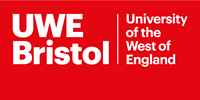Dr D Reynolds
No more applications being accepted
Funded PhD Project (European/UK Students Only)
About the Project
Supervisory team:
Main supervisor: Prof Darren Reynolds (University of the West of England; UWE)
Second supervisor: Dr Robin Thorn (University of the West of England; UWE)
Non-academic (CASE) supervisor: Mr Andrew Cox (Hydrolize Ltd)
Collaborators: Mr Simon Browning (West Country Rivers Trust)
Host institution: University of the West of England; UWE
Please submit applications for this project to the University of Bristol
CASE partner: Hydrolize Ltd
Project description:
The qualities of our rivers are changing, in part as a result of agricultural activities and the release of insufficiently treated sewage in to river catchments. According to the EU Water Framework Directive 2018 Assessment of status and pressures of European Waters (European Environment Agency, 2019), more than 60% of surface freshwaters in Europe do not achieve ‘good’ ecological status, and 38% are impacted by diffuse source pollution pressures. Over recent decades, the availability of reactive nitrogen species and nutrients has greatly increased as a result of fertilizer application (including ammonia and phosphate) resulting in nutrients loading our rivers and streams via runoff from agricultural land. Nitrates and phosphates are often the limiting nutrient to primary production in surface freshwaters, therefore when a river is subjected to excessive nutrient loads this increases the rates of primary production and subsequently leads to eutrophication. Non-point sources of nutrient loading, originating from agricultural land that is being used to grow the food we need, is a major source of nitrate and phosphate pollution in our rivers. This often leads to algal blooms. Similarly,
untreated or insufficiently treated organic matter (e.g. sewage, manure, anaerobic digestate) that is released into aquatic environments from farms and fields or remote (no personnel) rural treatment works also impact on the quality of our rivers and the ecosystems they support. Most common is the reduction or complete removal of dissolved oxygen from within the river that is vital to sustain healthy
ecosystems.
Through our industrial collaborator, the aim of this project is the investigation, development, design, fabrication and ultimate implementation of a small scale, low-cost, low-energy microbial biofilter system (building on existing Hydrolize Ltd expertise) for decentralised agricultural water treatment/river remediation applications. Hydrolize Ltd. currently develop and design biofiltration
systems that maintain swimming pool water quality, by controlling residual nutrient concentrations and subsequently controlling the presence of waterborne pathogenic microorganisms. This project will investigate the use of beneficial biofilms for agricultural water treatment and resource recovery applications and will translate research from the laboratory into the field using a scientific and
commercial framework. Hydrolize Ltd will offer the necessary expertise and technical assistance to facilitate the translation of idea into technical and commercial reality.
How to apply: https://www.swbio.ac.uk/programme/how-to-apply/
UWE website: http://www.uwe.ac.uk/graduateschool
SWBio website: https://www.swbio.ac.uk/

 Continue with Facebook
Continue with Facebook

